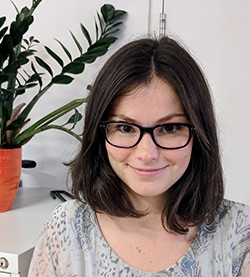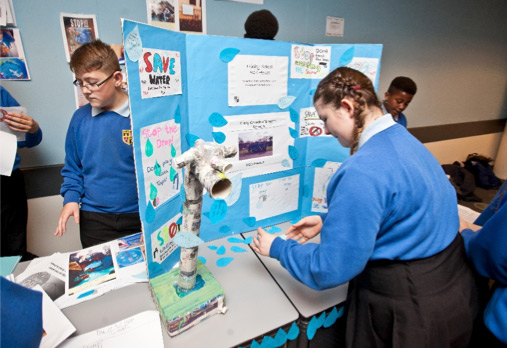
The next generation of water protectors
Posted on: October 2017Amber Robinson
 |
By Amber Robinson Bio: After studying Environmental Policy and Management at Bristol, Amber joined Global Action Plan’s Schools team where she delivers free educational programmes to young people aged 8-14. Designed to inspire young people to take action to tackle key environmental issues, the programmes cover a range of topics, with a big focus on water. |
The next generation of water protectors
Clean water, access to sanitation, and an understanding of good hygiene practices are essential for the survival and development of children. So who better to empower to tackle local and global water issues than young people themselves?
As the leaders of tomorrow, young people are going to be key to achieving the United Nation’s Sustainable Development Goals, including Goal 6 – access to safe water and sanitation. We need young people to be engaged in these issues and empowered to lead the change!
At a youth focus group that I attended recently, it came across loud and clear that young people want to do something to tackle the environmental issues we face today, but feel that they’re not able to affect change: that their voices aren’t being heard. Helping young people to find a way to make their voices heard is, in my opinion, therefore one of the keys to empowering them to tackle problems like water scarcity.
One of the students I’ve worked with on tackling water issues wrote the following blog about her experience of entering the world of water savings, through a programme called H2O Heroes.
“Our H2O Heroes journey began when we first met the H2O Heroes team from Global Action Plan. They told us how much of a privilege it is to be able to get clean water straight out of a tap – not everyone is as fortunate as us and some people have to walk miles to get to a water source. In addition to there being a global shortage of water, we also learnt about how wasting water can lead to climate change, and that climate change can lead to water stress meaning there is less water available for us here in the UK.
We then came up with lots of different activities to encourage the school community to use water more carefully and waste less. Some of the projects we created included:
- Creating posters for the science labs to stop students turning on taps in the rooms unnecessarily
- Setting up a ‘pledge pond’ at lunchtimes for three weeks where the rest of the school had the opportunity to come along and make a pledge about what they will do to stop wasting water
- Teaching and encouraging people about how useful rainwater can be, by setting a competition to year 8 students where they designed devices to collect rain water and then use the rain water to grow cress seeds and sunflowers
- We performed short plays to Year 7s at the beginning of their geography lessons this week. The play taught the Year 7s about the importance of water, and the variety of ways we can stop wasting it. Each Year 7 geography class then made rain water harvesting devices and set them up ready to grow cress seeds in geography lessons!
- Visits to four primary schools where we delivered assemblies about water and set the schools the rainwater collecting challenge where they also need to use it to grow cress seeds and sunflowers
- A non-school uniform day, where we raised £830 for Water Aid. On the morning of this day we led an Act of Worship for Year 8 and set all Year 8 forms the rain water harvesting challenge too!
- Two of the Hâ‚‚O Heroes members have also given talks to the scout groups and church groups that they belong to, about why it is so important to save water and what they could do to reduce wasting water
This was an exciting project aimed at changing peoples’ behaviour. I think throughout this project we gained a substantial amount of knowledge about how to save water and I think this project has been a fantastic and tremendously fun and rewarding chance to give people a new perspective, save water and become H2O HEROES!!!â€

To me, this blog perfectly exemplifies the way that young people connect with water issues: emotionally. In my experience, they decide to act to tackle water issues because they genuinely care about the impacts that these problems have on the world around us, and the people and animals inhabiting it, and feel a sense of responsibility to act. Once this connection is made, they throw themselves into all kinds of water saving activities. The students in the blog above estimated that they reached around 5,000 people through their campaign, demonstrating that, with the right support, young people certainly can get their voices heard, and can have a real water saving impact on their communities!
Amber Robinson
Change Coordinator, Global Action Plan



